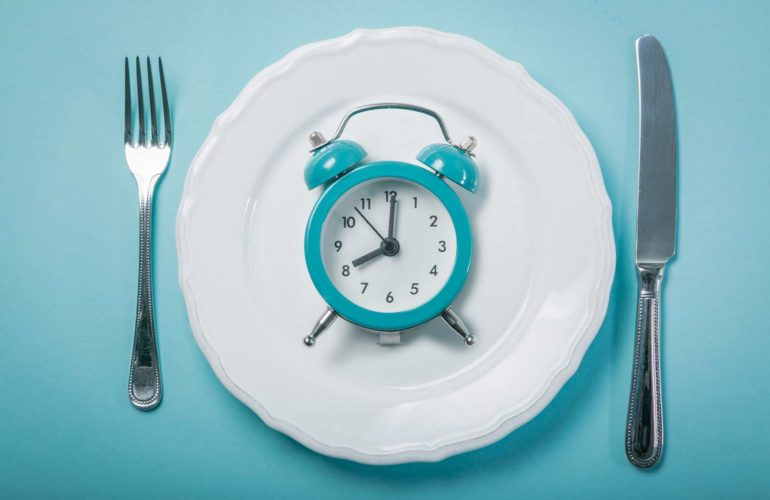Intermittent fasting is a wonderful tool for weight loss. It is not a meal plan but an eating pattern where you cycle between periods of eating and fasting. Intermittent fasting does not talk about which foods to eat, how much to eat but rather when you should eat. In this article we’ll delve a bit deep into the concept and aspects of intermittent fasting.
What is intermittent fasting ?
- By definition, intermittent fasting simply means eating for a certain period of time and then fasting for a set number of hours
- The logic behind intermittent fasting is that humans were not used to live in environments where we had access to food 24 hours a day like we do now
- Rather, they evolved in a time when food was relatively scarce and they had to function at their best physically and mentally often in a fasted state
- In modern times, this translates to not eating for many hours in a day, working out in a fasted state and then limiting your meals during the day to a shorter number of hours
What is 16 : 8 intermittent fasting ?
- This intermittent fasting limits eating to 8 hours a day and requires fasting for the remaining 16 of the 24 hours
- Although 16 hours seems like a long time but it also includes time spent sleeping
- It forces the body to wake and work out in a fasted state for which it uses the fat stored in the body for energy
- Reasonable meals are to be consumed through out the 8 eating hours
Benefits of intermittent fasting
- Studies show greater benefit from intermittent fasting than from a continuous calorie restriction style diet
- Some studies have also shown that dieters had more energy and clarity when they followed a 16 : 8 style diet
- This method of fasting has been shown to be effective in limiting calorie intake to reduce fat while maintaining performance and muscle tissue
- Intermittent fasting doesn’t require calorie tracking but can be used in conjunction with any healthy diet pattern
How to follow intermittent fasting safely
- To follow 16 : 8 intermittent fasting plan safely, you need to be well hydrated while not eating by drinking plenty of water
- Coffee or unsweetened green tea may be consumed to help fuel your workout
- When you’re in the 8 hour eating period, it is crucial to obtain high quality meals containing proteins, carbs and fat
- You need to be cautious of not overeating, intermittent fasting is designed to keep your body in deficit for the day as a whole
- If you have blood sugar control issues, intermittent fasting may not be a good idea
- Also if you’re pregnant or breastfeeding or take medicines which are to be taken with food, speak to your doctor before indulging in 16 : 8 diet
How to make intermittent fasting work faster ?
- Take good quality and quantity of sleep to fight stress
- Perform medium to high length High Intensity Interval Training
- Stay hydrated at all times
- You can consume liquids under 20-30 calories during the fasting window
- Avoid caffeinated drinks like black / green tea / coffee etc
- Instead consume liquids like plain green juice (barley, wheat grass, neem juice) without any sweetners
- Aloevera juice and amla juice are great options as well
- Open and close your fasting and eating window carefully
- Avoid overeating when you open / close your windows
- Eat more fresh produce (fruits and vegetables) to avoid nutritional deficiences
- Move gradually towards the 16 : 8 window
